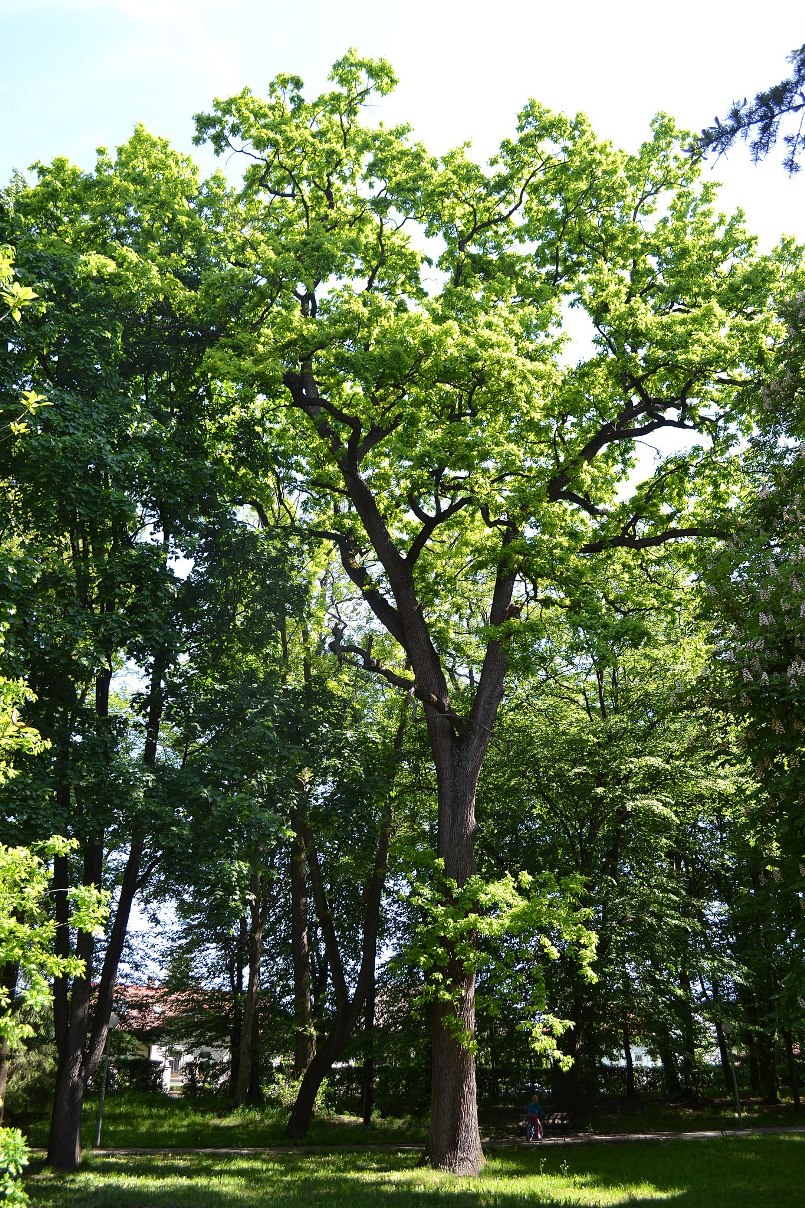Quercus petraea
Sessile oak
Species Tolerances
- Drought Tolerance: High
- Shade Tolerance: Yes
- Waterlogging Tolerance: Low
- Frost Tolerance (trees from warmer climates may be frost tolerant, but their flowers may not be): Yes
- RHS Hardiness: H7
- Optimum Conditions for Growth:
A large, long lived canopy tree. Prefers damper, acidic to neutral soils, with cooler, shorter summers and high rainfall as found in upland areas, especially in the west. - Susceptibility to Pest/Disease:
May be susceptible to oak processionary moth, acute oak decline, and chronic oak decline

Pedunculate oak in Lustenau (Vorarlberg, Austria)/ Asurnipal/ https://creativecommons.org/licenses/by-sa/4.0/deed.en
Service to Pollinators
- Summary of Service to Pollinators:
Wind pollinated, so flowers not significant to most pollinators, though honeydew is produced on a large a scale so many bees and other pollinators will feed on this when other nectar sources are scarce. Also provides resins/oils for honeybees to make propolis. - Nectar Value to Pollinators: 0 (of 0-3)
- Honeydew Value to Pollinators: 3 (of 0-3)
- Pollen Value to Bees: 0 (of 0-3)
- Flowering Period: April-May
Risks
- Human Toxicity: Non-toxic
- Livestock Toxicity: Toxic
- Invasive Risk: No
- Suckering: No
Products
- Edible Fruit: Yes
- Edible Leaves: No
- Edible Sap: No
- Edible Seeds: Yes
- Honey, major source in UK: No
- For any medicinal potential, see 'Further Details' below.
- Timber: Yes
- Livestock Fodder: No
- Other Products:
The fruit/seeds are only edible if leached of tannins. Traditionally pigs have been allowed to forage in woodland for acorns, known as ‘pannage’, particularly in mast years.
Utility
- Nitrogen Fixation: No
- Organic Matter Accumulation: Yes
- Phytoremediation: Insufficient Data
- Deacidification: Insufficient Data
- Windbreak: Yes
- Soil Erosion Control: Yes
- Shade or Shelter: Yes
- Plant Support: Yes
- Integrated Pest Management: Insufficient Data
- Wildlife Value: Yes
- Wildlife Value Summary:
Very good for biodiversity referring to invertebrate diversity feeding on the tree, especially insects which benefit from the rich honeydew source when aphids are active. Oils and resins also valuable to insects. Acorns are available to a large range of birds and mammals. - Graduated Nativeness Classification ⓘ: 1 (of 1-10)1. Historic Native
2. Historic Introduction
9. Neutral Introduction
Further Details
Honeydew value is particularly high for all pollinators